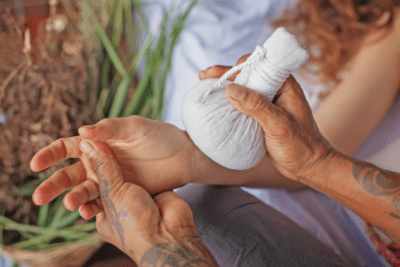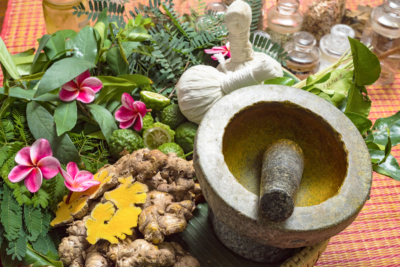Winter is a beautiful season that brings with it a sense of coziness and tranquility. However, it also brings colder temperatures and drier air, which can have an impact on our overall well-being. Ayurveda, the ancient Indian system of medicine, offers valuable insights and practices to help us stay healthy and balanced during the winter months. In this article, we will explore some Ayurveda tips for winter wellness rituals that you can incorporate into your daily routine.
Introduction
Ayurveda, often referred to as the “science of life,” is deeply rooted in natural principles and holistic well-being. As we approach winter, understanding Ayurveda becomes crucial for maintaining harmony in our bodies and minds. In this article, we’ll explore Ayurvedic practices tailored for the cold season, providing you with a roadmap to winter wellness.
May You Like This – How to Restore Kidney and Liver Health Naturally?
Understanding Ayurveda and Winter Doshas
Ayurveda categorizes individuals into three doshas – Vata, Pitta, and Kapha – each representing different combinations of the five elements. In winter, these doshas tend to behave distinctively, influencing our physical and mental states. Let’s delve into how each dosha behaves during the colder months.

Balancing Vata Dosha in Winter
Winter is notorious for exacerbating Vata dosha, leading to issues like dry skin, joint pains, and anxiety. To counteract these effects, focus on a Vata-balancing diet, including warm and nourishing foods. Additionally, adopting calming lifestyle practices, such as gentle yoga and regular routines, can help pacify Vata.
Harmonizing Pitta Dosha during Winter
While Pitta dosha is typically associated with heat, it can become imbalanced in winter due to cold and dryness. Incorporate cooling foods and herbs into your diet, and engage in activities that soothe Pitta, like spending time in nature or practicing meditation.
Nurturing Kapha Dosha in the Cold Season
Kapha dosha, dominated by earth and water elements, can lead to lethargy and congestion in winter. Combat Kapha imbalance by embracing a diet rich in warming spices and engaging in invigorating exercises. This will keep your energy levels up and prevent the sluggishness often associated with Kapha excess.
Ayurvedic Winter Skincare Routine
The cold weather can take a toll on your skin. Opt for natural remedies like oil massages with warm sesame or almond oil to keep your skin moisturized. Ayurvedic herbs like aloe vera and turmeric can also be incorporated into your skincare routine for their healing properties.
Herbal Teas and Brews for Winter Wellness
Warm beverages are a winter essential, and Ayurveda has a range of herbal teas that cater to different doshas. Whether it’s a soothing chamomile tea for Vata, a cooling mint tea for Pitta, or a stimulating ginger tea for Kapha, these brews offer both comfort and health benefits.

Daily Ayurvedic Practices for Winter
Establishing a daily routine aligned with Ayurvedic principles can significantly impact your overall well-being. Begin your day with practices like tongue scraping and oil pulling, and wind down with calming rituals before bedtime. These habits create a sense of grounding and stability.
Winter Yoga Poses According to Ayurveda
Yoga is a powerful tool for maintaining balance in the body and mind. Customize your yoga practice based on your dominant dosha. Vata individuals may benefit from grounding poses, while Pitta types can find relief in cooling postures. Kapha-dominant individuals should focus on invigorating poses to uplift their energy.
Ayurvedic Immunity Boosters for Cold Months
Strengthening your immune system is crucial during winter. Ayurveda recommends herbs like ashwagandha, tulsi, and turmeric for their immune-boosting properties. Additionally, practicing good hygiene and following a nourishing diet contribute to overall immunity.
Incorporating Ayurveda in Winter Cooking
Ayurvedic cooking is about using seasonal ingredients and spices that complement your dosha. Embrace hearty and warming meals, incorporating spices like cumin, coriander, and ginger. These not only enhance flavor but also aid digestion, a key aspect of Ayurvedic principles.
Holistic Approach to Mental Wellbeing in Winter
The winter blues are real, and Ayurveda addresses mental well-being with mindfulness and meditation. Establish a regular meditation practice, indulge in activities that bring joy, and connect with nature to uplift your spirits during the darker months.

Ayurvedic Recommendations for Winter Ailments
For common winter ailments like colds and flu, Ayurveda provides natural remedies. From herbal teas to steam inhalation, these time-tested solutions offer relief without the side effects often associated with conventional medicine. However, it’s essential to consult an Ayurvedic practitioner for personalized advice.
Celebrating Ayurvedic Festivals in Winter
Ayurveda is deeply intertwined with cultural festivals that hold significance during the winter months. Engage in rituals and traditions that promote community, gratitude, and connection. These practices not only align with Ayurvedic principles but also contribute to a sense of overall well-being.
Conclusion
By incorporating these Ayurvedic tips and winter wellness rituals into your daily routine, you can support your overall well-being during the colder months. Remember to stay warm, nourish your skin, eat seasonal and warm foods, stay hydrated, practice yoga and meditation, get plenty of rest, and prioritize self-care. Embrace the beauty of winter and create a harmonious balance within yourself.
FAQs
Can Ayurveda help with winter depression?
Ayurveda offers holistic approaches to combat winter blues, including mindfulness, meditation, and specific dietary recommendations.
Is Ayurvedic medicine safe for everyone?
While generally safe, it’s advisable to consult with an Ayurvedic practitioner, especially if you have pre-existing health conditions or are on medication.
Are there specific yoga poses for each dosha in winter?
Yes, adapting your yoga practice to your dosha can enhance its benefits. Consult an Ayurvedic expert for personalized recommendations.
How does Ayurveda view winter illnesses like the flu?
Ayurveda sees them as imbalances in the body and recommends herbal remedies and preventive measures to strengthen the immune system.
Can Ayurveda be combined with conventional medicine?
It’s essential to inform your healthcare provider about any Ayurvedic supplements or practices to ensure compatibility with conventional treatments.

